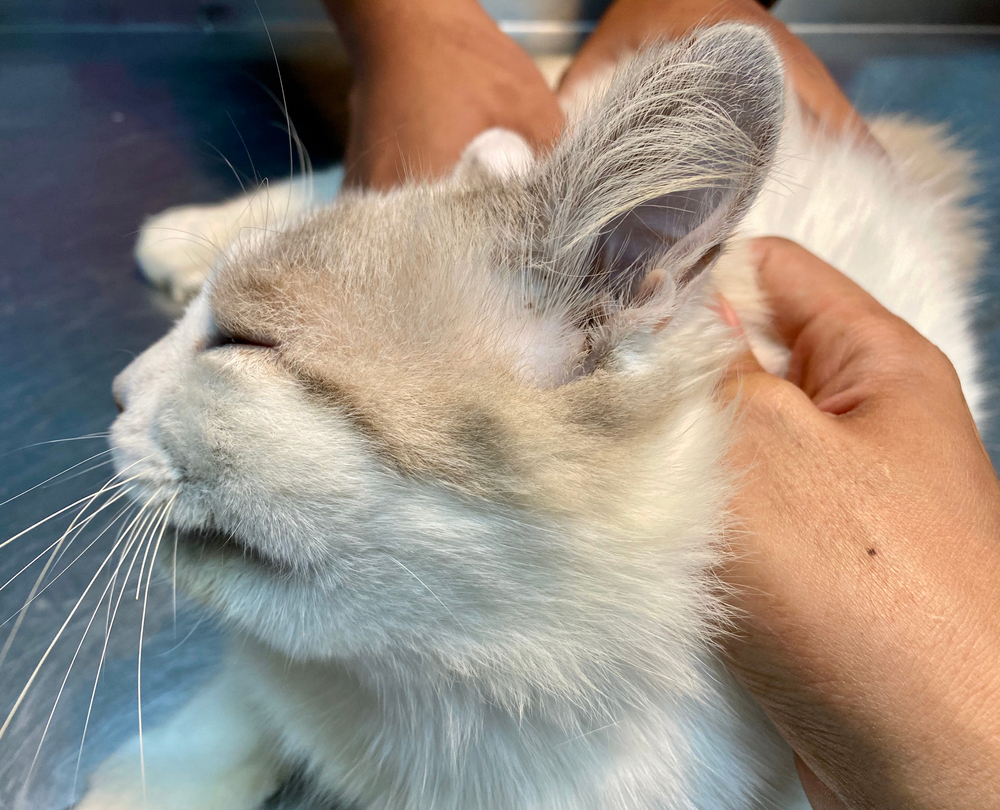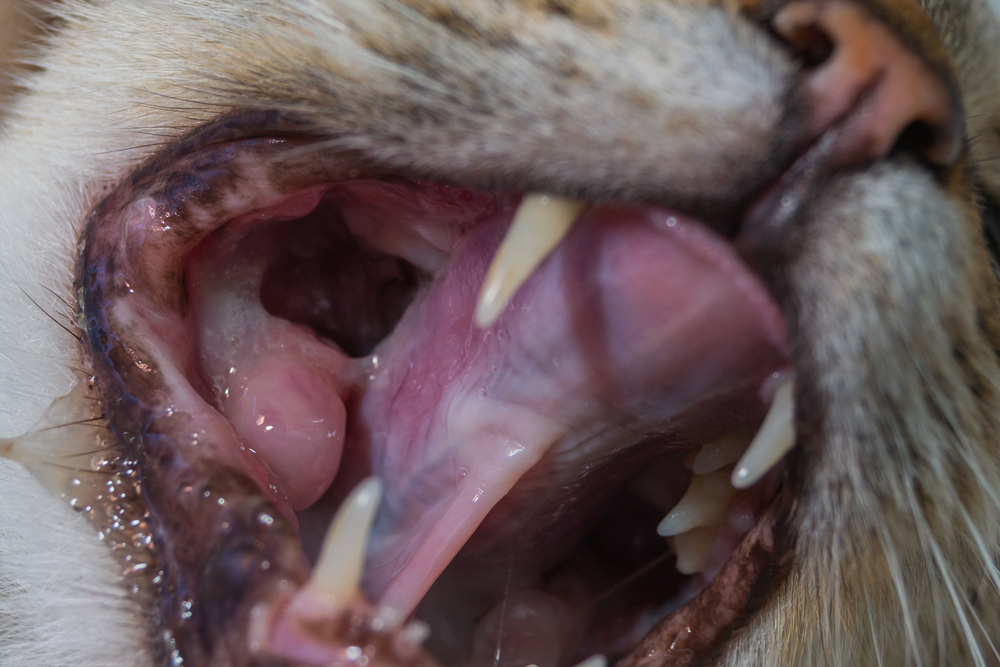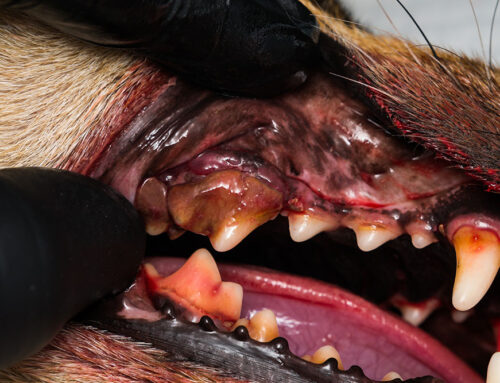Most pet owners are unlikely to find an oral tumor in their feline friend. Be honest—how often do you thoroughly examine the inside of your cat’s mouth? Without routine oral exams, a tumor can go unnoticed until reaching a considerable size. In addition, most feline oral tumors are malignant, which means that early diagnosis and treatment are critical for the best outcome.
In this article we discuss the most common oral tumors in cat, and what to look out for so that you can best care for your feline friends.
Oral squamous cell carcinoma in cats
Squamous cell carcinoma (SCC), which accounts for 60% to 80% of all oral tumors in cats, forms from the squamous cells that line the outer layer of the skin, mucus membranes (like the inside of the cheeks and nose), respiratory tract, and gastrointestinal (GI) tract. Oral SCC is typically divided into tonsillar SCC, which affects the tonsils, and non-tonsillar SCC, which can appear along the gumline, on the tongue, and anywhere in the oral cavity. SCC tumors can look like raised flat lesions or nodular or cauliflower-like masses, can ulcerate and bleed, and may invade the underlying jawbone.
While no straightforward answer exists about what causes cancer in cats, a few factors are known to contribute to oral SCC development. High exposure to tobacco smoke, living in a rural outdoor setting, and eating a low-cost wet food diet have been identified as significant risk factors. Chronic inflammation or chronic dental disease may also contribute to oral SCC development.
If your cat develops an SCC lesion in their mouth, you may confuse early stage cancer with dental disease. Oral SCC clinical signs in cats include:
- Bad breath
- Excessive salivation
- Inappetence
- Difficulty eating
- Oral ulcers
- Loose teeth
In cats with tonsillar SCC tumors, the tonsils may swell and make breathing and swallowing difficult.
An accurate SCC diagnosis requires a biopsy, as well as blood work, a urinalysis, and chest X-rays to stage the disease and check for metastatic spread. Cone beam CT imaging can help identify jawbone involvement, and determine if there is spread beyond what meets the eye..
Most cats with oral SCC have an extremely poor prognosis. Typically, the cancer has infiltrated the bone or adjacent soft tissues by the time of diagnosis, so complete surgical excision of all cancer cells is impossible. Chemotherapy and radiation have shown little success in treating SCC, because the tumors rapidly regrow after treatment. For most cats, their quality of life is very poor, despite treatment, leading to euthanasia one to three months after diagnosis.
Oral fibrosarcoma in cats

About 10% to 20% of oral tumors in cats are fibrosarcomas, which arise from the connective tissue in the mouth. In general, fibrosarcomas are locally aggressive and invade nearby tissues, but they rarely metastasize to other organs.
Oral fibrosarcoma signs in cats are similar to those of dental disease and other oral cancers and include:
- Weight loss
- Excessive drooling
- Halitosis
- Difficulty eating
- Facial swelling
- Swollen local lymph nodes
- Oral bleeding
- Tooth loss
In some cases, the tumor may spread to the nasal cavity, interfere with breathing, and cause nasal discharge.
A fibrosarcoma diagnosis is best achieved through a biopsy, because surgically removing and sending a portion of the tumor for testing also provides information about the tumor’s potential behavior (e.g., recurrence or spread). These tumors are often underestimated, because they appear non-aggressive on microscopic examination, but will behave aggressively. Therefore, all fibrosarcomas should be treated aggressively, regardless of their assigned grade.
Oral fibrosarcomas respond to chemotherapy and radiation in much the same way as oral SCCs—not well. However, these therapies still may be recommended following surgery, because cancerous cells will likely linger. To surgically excise the tumor, part of your cat’s upper or lower jaw may also require removal, but the entire tumor is often impossible to remove because of localized spread.
Since completely eliminating fibrosarcoma tumors is so difficult, recurrence is high. Finding a mass early in the disease process gives your cat the best chance but, unfortunately, a cat with oral fibrosarcoma does not have a good prognosis.
If your cat is diagnosed with oral cancer, we will work closely with you to find the best way to care for your feline friend. If definitive treatment isn’t an option, we can still help coordinate the best medications, foods and other treatments to help your pet feel as best as is possible. Schedule a comprehensive oral exam with our North Bay Veterinary Dentistry team if you suspect your cat has oral cancer, or just to establish a baseline oral examination for your cat.






Leave A Comment